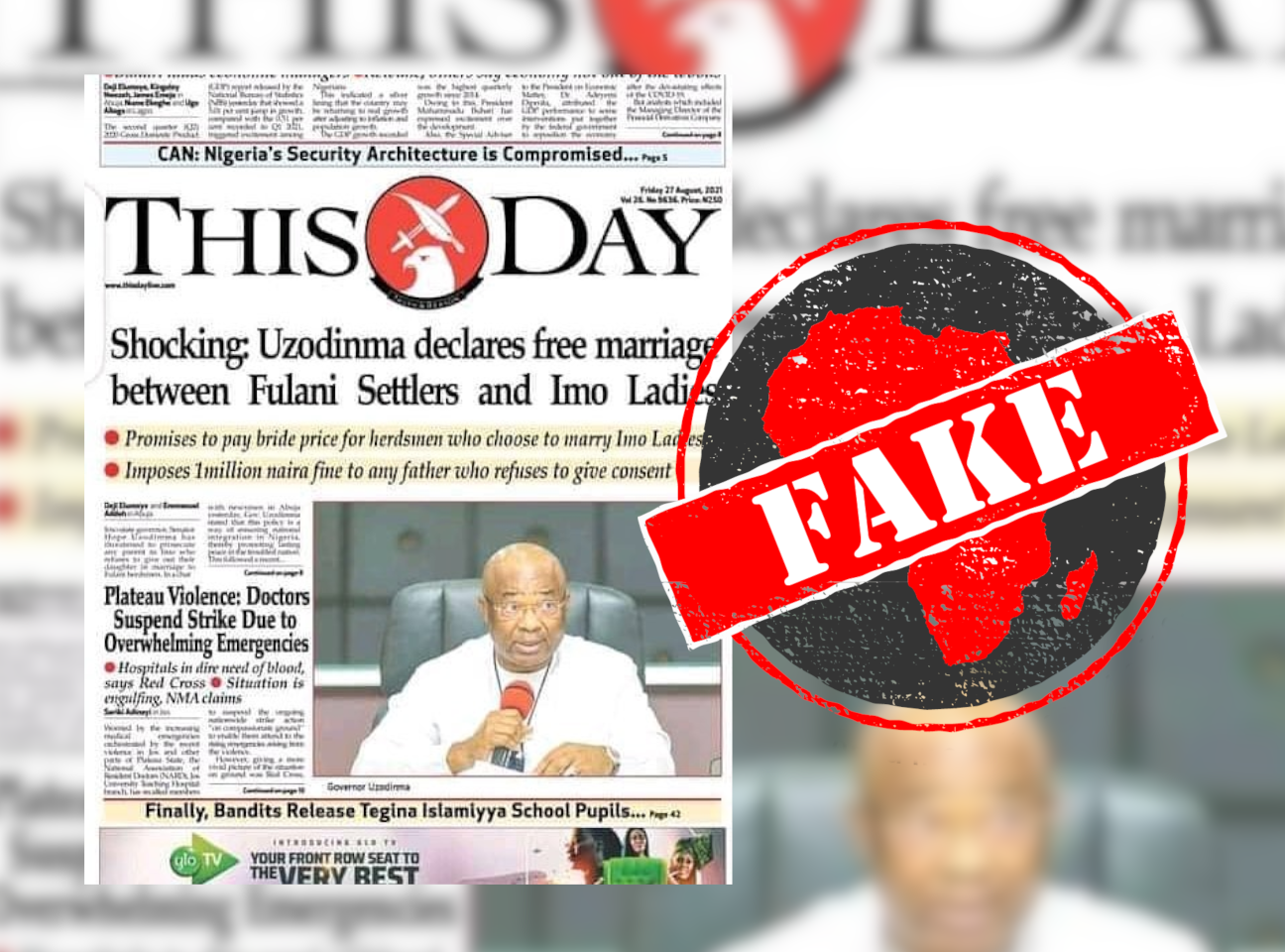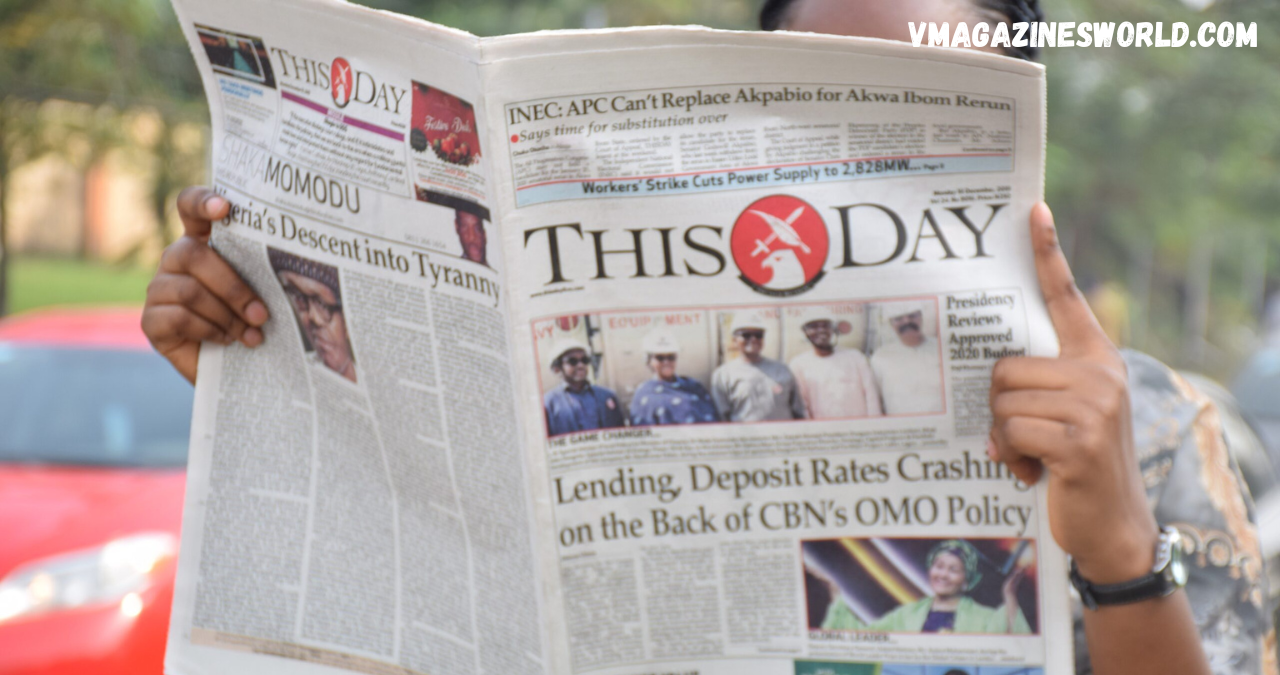In a world rapidly pivoting toward digital screens and fleeting news snippets, traditional print media still commands significant influence in certain regions. One such beacon is ThisDay Newspaper — a respected pillar in Nigeria’s vibrant media ecosystem. Launched during a critical juncture in the country’s history, ThisDay quickly evolved into not just a news source, but a formidable voice shaping public discourse.
The importance of newspapers like ThisDay cannot be overstated. They serve as a bridge between policymakers and citizens, a watchdog over governments, and a platform for intellectual debate. In this article, we delve deep into the history, influence, business model, and future of ThisDay Newspaper. Understanding its journey offers a lens into the broader dynamics of Nigerian media and society itself.
ThisDay Newspaper was established in 1995 by media entrepreneur Nduka Obaigbena, at a time when Nigeria’s political climate was tense and freedom of the press was continually under threat. Amidst military rule and censorship, Obaigbena envisioned a publication that would champion free speech, advocate for democratic values, and foster an informed citizenry. The newspaper launched with a bold, progressive editorial stance, quickly setting it apart from contemporaries.
During its early years, ThisDay faced monumental challenges: economic instability, government hostility, and competition from established players like The Guardian and The Punch. Nevertheless, its commitment to high-quality journalism and fearless reporting propelled its popularity. Landmark coverage of political upheavals, economic reforms, and international affairs solidified its standing. Over time, ThisDay not only survived but thrived, marking its place as a chronicler of Nigeria’s unfolding story.
Key milestones include expanding into daily and weekend editions, developing a lifestyle magazine, and hosting high-profile events such as the ThisDay Awards and summits that attracted world leaders. These strategic moves elevated the brand from a newspaper to a multi-platform media powerhouse.
Unlike many Nigerian newspapers known for overt political biases, ThisDay has carved out a reputation for nuanced, in-depth reporting. Its editorial philosophy is anchored on promoting democracy, economic development, and transparency. The newspaper’s motto, “Truth and Reason,” is more than just a slogan—it is a guiding principle evident in its news selection, investigative pieces, and opinion editorials.
ThisDay’s commitment to balanced reporting is especially notable during election seasons, where it often provides platforms for multiple political voices without descending into partisanship. At the same time, it isn’t shy about holding those in power accountable, earning both admiration and criticism from various quarters.
Noteworthy are ThisDay’s special investigative series, such as exposés on corruption in government procurement and coverage of human rights abuses. These stories demonstrate an enduring commitment to journalism that serves the public interest rather than corporate or political masters. In an environment where media can sometimes serve as a propaganda tool, ThisDay maintains a distinct editorial independence that commands respect.
Behind ThisDay’s editorial excellence lies a complex business operation. Owned and steered by Nduka Obaigbena and a dedicated leadership team, the organization has successfully diversified its revenue streams beyond traditional newspaper sales. Event hosting, strategic partnerships, and advertising represent major pillars of its financial model. The ThisDay Awards and ThisDay Music Festival brought in sponsorships and positioned the brand at the heart of Nigeria’s elite social scene.
A significant expansion milestone was the launch of Arise TV, an international news channel with headquarters in London, New York, Johannesburg, and Lagos. Arise TV was envisioned as Africa’s answer to CNN, and it marked Obaigbena’s ambition to extend ThisDay’s influence globally.
Nevertheless, financial challenges have occasionally clouded the company’s image, including accusations of delayed staff payments and operational debts. Yet, ThisDay’s resilience is evident in its continuous innovation, particularly its early move into digital publishing. The newspaper’s website and e-paper offerings ensure that its influence extends to the growing population of tech-savvy Nigerians and global audiences.
Throughout its history, ThisDay has played a significant role in Nigerian society. Its coverage of political reforms, anti-corruption campaigns, and socio-economic developments has shaped public opinion and influenced policy debates. The paper has provided a platform for diverse voices — from political leaders and economists to artists and activists — contributing richly to the national conversation.
ThisDay’s high-profile events, like the ThisDay Awards for Excellence, have celebrated achievements across politics, business, and the arts, further embedding the newspaper into the cultural fabric of Nigeria. The events draw global attention, with dignitaries such as Bill Clinton and Tony Blair among past guests, cementing the newspaper’s status as an international connector.
Of course, no institution is without criticism. ThisDay has faced allegations of biased reporting during certain political cycles and accusations of pandering to elite interests. However, it has also demonstrated an ability to reflect on its role and adapt to evolving expectations, maintaining its relevance over decades.

In Nigeria’s competitive media landscape, ThisDay stands shoulder-to-shoulder with venerable titles like The Punch, Vanguard, and The Guardian. However, while others often appeal to specific demographics — such as The Punch’s populist tone or The Guardian’s intellectual flair — ThisDay positions itself as a middle-ground publication balancing sophistication with mass appeal.
Unlike some of its counterparts, ThisDay invests heavily in lifestyle, entertainment, and business journalism alongside its hard news content. Its luxury-focused Style insert and emphasis on corporate reporting distinguish it from more politically centered rivals. Moreover, ThisDay has consistently attracted a more upscale readership, including policymakers, CEOs, and the international diplomatic community.
Reputation-wise, ThisDay is viewed internationally as one of Nigeria’s most credible newspapers. Its association with Arise News further boosts its global recognition, offering a broader platform for telling African stories to the world.
As traditional print circulation faces challenges globally, ThisDay has shown a forward-thinking approach in embracing digital transformation. Its website, offering free and subscription-based content, ensures accessibility to a diverse range of readers. Social media platforms such as Twitter, Instagram, and Facebook are also actively used to share breaking news, opinion pieces, and event updates.
Recognizing the mobile-first reality of today’s readers, ThisDay optimized its content for smartphones and introduced interactive features to enhance user engagement. The platform offers video reports, podcasts, and infographics, enriching the reader’s experience beyond static text.
However, the transition has not been without hurdles. Navigating issues like fake news, declining ad revenues, and information overload presents ongoing challenges. Nonetheless, ThisDay remains committed to credible journalism and is continually investing in digital literacy among its reporters, SEO best practices, and cybersecurity measures to protect its growing online community.
Looking ahead, ThisDay is poised to deepen its digital footprint, possibly experimenting with new formats like newsletters, webinars, and AI-powered news delivery, ensuring it remains a leader in Nigeria’s fast-evolving media landscape.
From its courageous beginnings in the mid-90s to its present stature as one of Nigeria’s most influential media houses, ThisDay Newspaper exemplifies resilience, innovation, and journalistic integrity. It has not only chronicled Nigeria’s democratic journey but also played an active role in shaping the nation’s socio-political and cultural narratives.
In an age where media credibility is constantly questioned, ThisDay stands as a testament to the enduring power of quality journalism. As it embraces the digital future while staying true to its founding principles, ThisDay promises to remain a vital voice in Nigeria — and a shining example for emerging media enterprises across Africa.
Who founded ThisDay Newspaper?
ThisDay was founded in 1995 by Nduka Obaigbena, a Nigerian media entrepreneur.
What political alignment is ThisDay generally associated with?
ThisDay is often regarded as centrist, striving for balanced political reporting while advocating for democracy and transparency.
How has ThisDay influenced Nigerian politics and society?
By providing a platform for diverse voices and rigorous investigative journalism, ThisDay has shaped public discourse and influenced policy-making.
What are some controversies ThisDay has faced?
Controversies have included allegations of financial mismanagement and accusations of political bias during some election cycles.
How is ThisDay adapting to the challenges of digital media?
ThisDay has embraced digital innovation through a dynamic website, active social media presence, mobile optimization, and multimedia journalism.
You May Also Read: https://vmagazinesworld.com/
